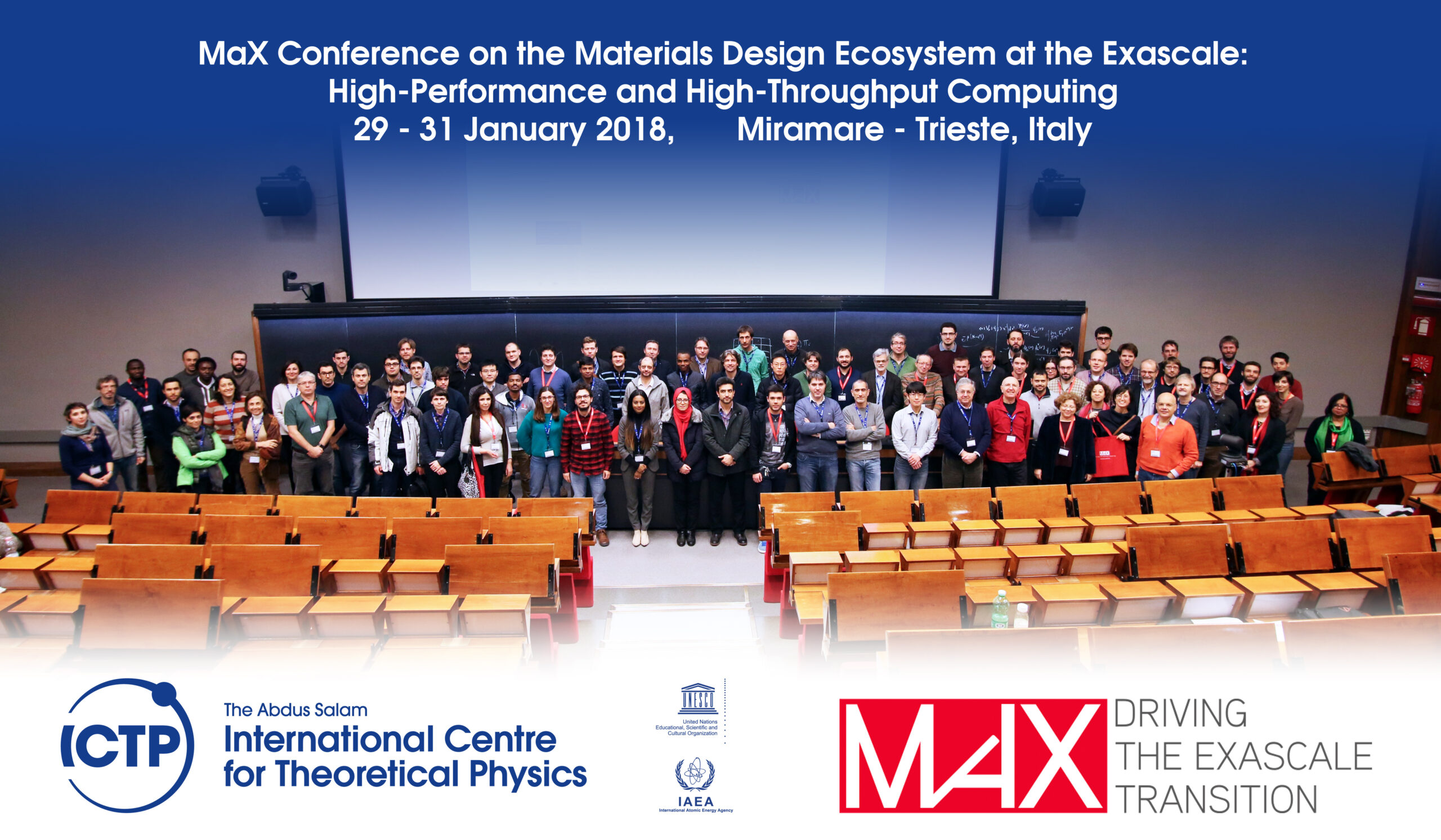Trieste (Italy), 2018, 29-31 January
Materials are crucial to scientific and technological advances and industrial competitiveness, and to tackle key societal challenges — from energy and environment to healthcare, information and communications, manufacturing, safety and transportation. Computational science, with the current accuracy and predictive power, can play a very relevant role in this respect by boosting materials design and discovery.
In this scenario, scientific objectives and computational technological perspectives are nowadays more intertwined than ever. The MaX Centre (Materials Design at the Exascale), one of the nine Centres of Excellence for computing applications funded by the EU since 2015, has been acting along two core lines, namely, high-performance computing (HPC), in view of the transition to exascale architecture, and high-throughput computing (HTC), with the final aim of building a materials modelling ecosystem. The MaX Centre has taken the opportunity of its general conference to share with the scientific community its current efforts and future perspectives, as well as to underline the state of the art of both the scientific and the technological innovation which can disruptively impact on material discovery in the next decade.
The general focus of the Conference was on scientific advances in computational materials research, as well as future developments in the exascale perspective.
The program included sessions with invited speakers only plus a dedicated poster session on topics including – but not limited to -:
- Scientific advances in materials research exploiting high-performance computing
- High-throughput computing for materials discovery
- New avenues from data analytics / artificial intelligence in materials science
- Trends in high performance computing and codesign towards exascale
- New algorithms for first principles simulation.

Leave a Reply